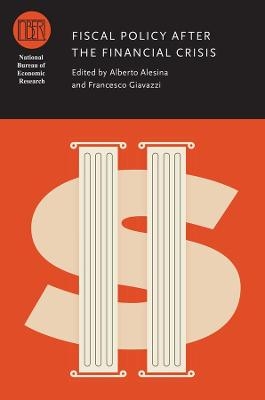
Fiscal Policy after the Financial Crisis
Seiten
2013
University of Chicago Press (Verlag)
978-0-226-01844-7 (ISBN)
University of Chicago Press (Verlag)
978-0-226-01844-7 (ISBN)
Focuses on the effects of fiscal stimuli and increased government spending, with contributions that consider the measurement of the multiplier effect and its size. This title also includes contributions discuss the merits of alternate means of debt reduction through decreased government spending or increased taxes.
The recent recession has brought fiscal policy back to the forefront, with economists and policy makers struggling to reach a consensus on issues like tax rates and government spending. At the heart of the debate are fiscal multipliers, whose size and sensitivity determine the power of such policies to influence economic growth. "Fiscal Policy after the Financial Crisis" focuses on the effects of fiscal stimuli and increased government spending, with contributions that consider the measurement of the multiplier effect and its size. Further contributions discuss the merits of alternate means of debt reduction through decreased government spending or increased taxes. A final section examines how the short-term political forces driving fiscal policy might be balanced with aspects of the long-term planning governing monetary policy.
The recent recession has brought fiscal policy back to the forefront, with economists and policy makers struggling to reach a consensus on issues like tax rates and government spending. At the heart of the debate are fiscal multipliers, whose size and sensitivity determine the power of such policies to influence economic growth. "Fiscal Policy after the Financial Crisis" focuses on the effects of fiscal stimuli and increased government spending, with contributions that consider the measurement of the multiplier effect and its size. Further contributions discuss the merits of alternate means of debt reduction through decreased government spending or increased taxes. A final section examines how the short-term political forces driving fiscal policy might be balanced with aspects of the long-term planning governing monetary policy.
Alberto Alesina is the Nathaniel Ropes Professor of Political Economy at Harvard University and a research associate and director of the Political Economy Program of the NBER. Francesco Giavazzi is professor of economics at Bocconi University, Italy; visiting professor of economics at the Massachusetts Institute of Technology; and a research associate of the NBER.
| Erscheint lt. Verlag | 9.7.2013 |
|---|---|
| Reihe/Serie | (NBER) National Bureau of Economic Research Conference Reports |
| Sprache | englisch |
| Maße | 17 x 24 mm |
| Gewicht | 1049 g |
| Themenwelt | Wirtschaft ► Betriebswirtschaft / Management ► Finanzierung |
| Wirtschaft ► Volkswirtschaftslehre ► Finanzwissenschaft | |
| Wirtschaft ► Volkswirtschaftslehre ► Makroökonomie | |
| Wirtschaft ► Volkswirtschaftslehre ► Wirtschaftspolitik | |
| ISBN-10 | 0-226-01844-X / 022601844X |
| ISBN-13 | 978-0-226-01844-7 / 9780226018447 |
| Zustand | Neuware |
| Haben Sie eine Frage zum Produkt? |
Mehr entdecken
aus dem Bereich
aus dem Bereich
Allgemeines Steuerrecht, Abgabenordnung, Umsatzsteuer
Buch (2024)
Springer Gabler (Verlag)
28,00 €
Unternehmensübernahmen und Finanzierungsstrukturen
Buch | Hardcover (2024)
Vahlen (Verlag)
129,00 €


